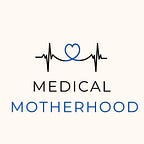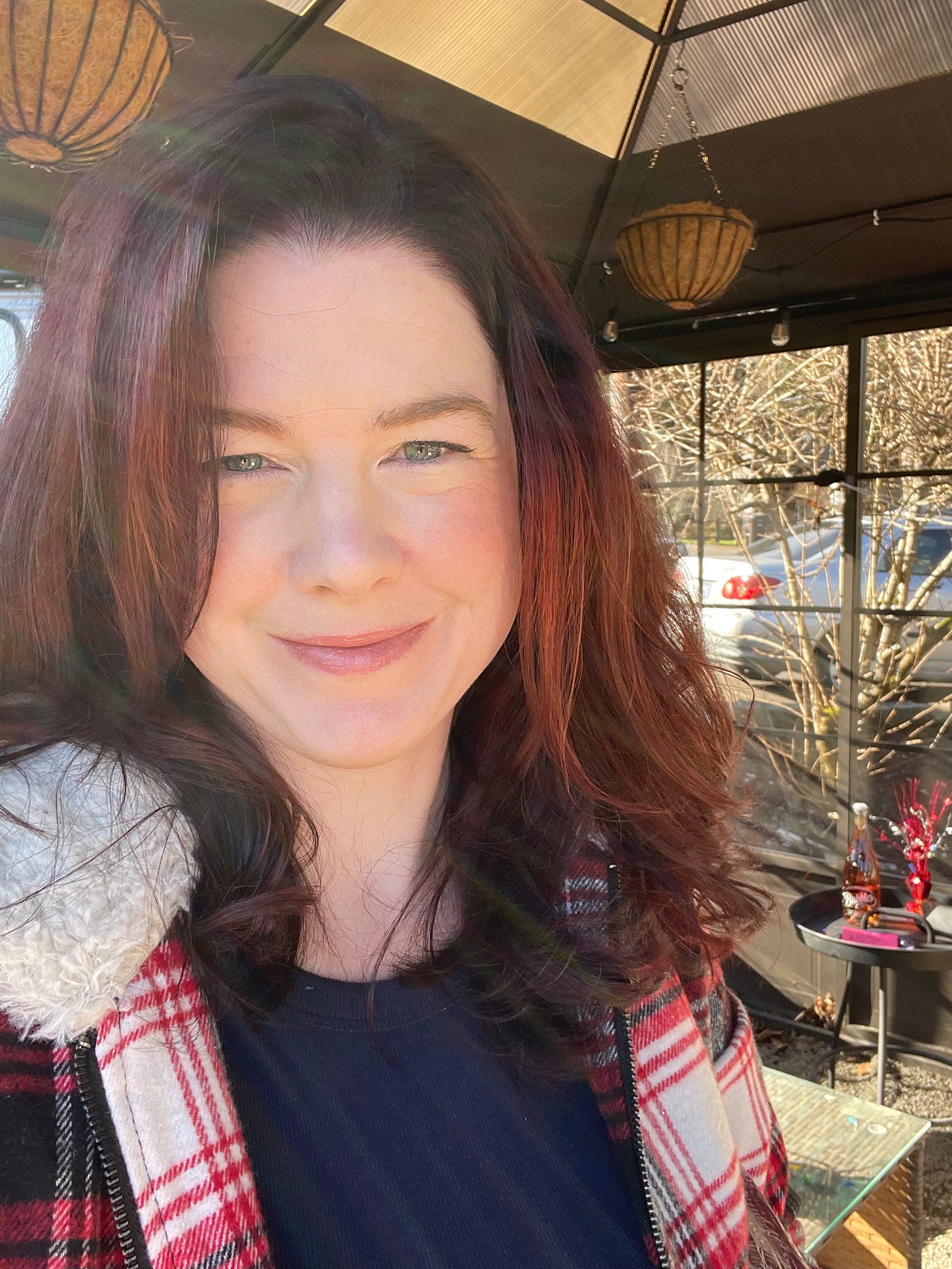“The hand that rocks the cradle is the hand that rules the world." — William Wallace
Speak your truth.
This newsletter started with just that thought.
I had been molded and reshaped by more than a decade of interactions with medical professionals, government agencies, schools, nonprofits, disability justice advocates and the general public. I had had to learn acronyms and pharmaceutical names and organizational charts. I had been made to feel unworthy, incapable, crazy and stupid.
But every time I spoke my truth and every time I listened to others in similar situations speak theirs, I heard the same pattern. I realized that this was not my failure alone. This same systemic dehumanization was happening again and again to parents of children across the disability spectrum. I found studies that showed the impacts. I found data that confirmed the anecdotes I’d heard. I found news stories from across the world.
I also found a community and I held up a mirror to them. You are not alone, I said. Every week in different ways, on different subjects:
Do you feel this way? You are not crazy. You are enough. And you are not alone.
The community spoke back.
“Each time I tell my story, it gets easier,” one mother told me.
“You write all the thoughts in my head,” said another. “Just in a way that makes sense to other people.”
I recently found this speech from filmmaker Charlie Kaufman and had to transcribe it. I hope it encourages you, like it encouraged me.
"Say who you are. Really say it in your life and in your work. Tell someone out there who is lost, someone not yet born, someone who might not be born for 500 years. Your writing will be a record of your time. It can’t help but be. But more importantly, if you’re honest about who you are, you’ll help that person be less lonely in their world. Because that person will recognize him or herself in you and that will give them hope. And it’s done so for me. And I have to keep rediscovering it — its profound importance in my life.
"…Do you. It isn’t easy but it’s essential. It’s not easy because there’s a lot in the way. In many cases, a major obstacle is your deeply seated belief that 'you' is not interesting. And since convincing yourself that you are interesting is probably not going to happen, take it off the table. Agree. Perhaps I’m not interesting, but I am the only thing I have to offer and I want to offer something. And by offering myself in a true way, I am doing a great service to the world, because it is rare. And it will help."
So to every one of the people over the past year who were willing to tell their stories through these pages: Thank you. By telling your story, speaking your truth, talking openly and honestly about the struggles, you are making the world better for our children and for the next generation of moms and dads and babies.
It has been incredible to watch this year how this little drop on the internet has rippled out into the world. To be honest: I’m kind of amazed that I’ve been able to put out a newsletter each and every week. And I wouldn’t have been able to without the amazing support of so many wonderful people.
Thank you to my husband, Matt, my love, my anchor and my sounding board. Thank you to grandparents and auntie Chelsea for watching the boys. Thank you to my fabulous caregivers, Erika, Sarah, Pheobe and Jessica. Thank you to my twin boys for giving up their mom for a few hours a week and (mostly) staying quiet while I record my podcast. The support I’ve gotten from my sons in particular has been so rewarding — I’ve seen how it has inspired them and freed them up to speak their own truths.
Thanks to Lee and Lenore and Thaddeus and Lisa and Beowolf and Vicki for their backend support of the technical aspects of Medical Motherhood and its podcast.
Thank you to the editors at publications that saw the value in these stories and this work and agreed to partner with Medical Motherhood to elevate them: Portland Tribune, PDX Parent, The Lund Report, Willamette Week and The Oregonian.
Thank you to every single person who read or listened or shared. These stories unite us and give us strength.
Thank YOU to subscribers, thank you listeners.
And so we enter a second year! Tomorrow paid subscribers only will get a sneak peek to see what’s in store in Year Two and the quarterly report for how much this publication has grown.
Finally: Happy Mother’s Day! Mothers rock.
Medical Motherhood’s news round up
Snippets of news and opinion from outlets around the world. Click the links for the full story.
• From KGW News Channel 8: “Parents with disabled children risk losing caregiver funding with nowhere else to turn” (Full disclosure: the subjects of this story are friends of mine.)
Due to his disability, Tens qualifies for more than 500 hours a month of in-home intensive services through Medicaid. A pandemic rule change allowed his parents to provide those services. The temporary waiver was put in place to reduce exposure to COVID-19.
“This is mildly over minimum wage,” said parent Calli Ross. “It’s not large but it’s enough to help families.”
Come mid-July that COVID-era exception ends in Oregon.
• From U.S. Senators Rob Portman and Sherrod Brown (press release): “Portman, Brown Introduce Bipartisan Legislation to Reform Supplemental Security Income Program to Stop Punishing Americans for Saving for Emergencies”
Today, [May 3] U.S. Senators Rob Portman (R-OH) and Sherrod Brown (D-OH) announced the introduction of the Savings Penalty Elimination Act to update the asset limits for Supplemental Security Income (SSI) beneficiaries, which would enable beneficiaries to have more savings in case of an emergency without affecting their benefits. The senators’ bill, the first significant bipartisan legislation in decades, would bring the SSI program into the 21st Century and ensure disabled and elderly Ohioans are able to live with dignity.
[…]The current SSI program hasn’t been updated since the 1980s, and punishes these Americans for working, saving for the future, and getting married. Right now, individuals getting SSI are limited to $2,000 in assets; for married couples it’s $3,000. The average current monthly benefit is $585 for individuals. For approximately 60 percent of recipients, SSI is their only source of income.
• From The Irish Times: “Families accuse HSE of wilfully neglecting children with disabilities”
Children with disabilities are being wilfully neglected by the [national health service] as their families struggle to cope without vital equipment such as wheelchairs and bathing seats, causing stress, financial strain and burnout, according to the organisers of a National Day of Action to be held on Friday (May 6th).
Rachel Martin of Fuss (Families Unite for Services and Support) said a number of protests nationwide were planned to highlight the “shambles” that was the newly reconfigured children’s disability services which parents had expected would mean a root and branch overhaul of services.
But lobby groups point out that an Inclusion Ireland report published in March found more than 50 per cent of families of children with a disability were not in receipt of any service, 85 per cent said they had been waiting over a year for services and almost 20 per cent of the 1,013 families surveyed criticised the quality of services, citing high staff turnover and excessive caseloads as problems.
The report found some families had waited as long as nine years for services with 5 per cent reporting a wait of over six years, 16 per cent waiting four-six years and 27 per cent waiting two-four years. When asked about the type of services their children needed, 88 per cent said occupational therapy, 86 per cent said speech and language therapy, 62 per cent psychology and 55 per cent physiotherapy.
Ms Martin said failure to ratify the optional protocol of the UN Convention on the Rights of Persons with Disabilities (CRPD), which would allow people with disabilities to take a case to the UN over violation of their rights, was very telling.
She also cited the failure to fully enact the Epsen (Education for Persons with Special Educational Needs) Act 2004, 18 years on, as calling into question the State’s commitment to giving a large cohort of people the opportunities to which they are entitled.













